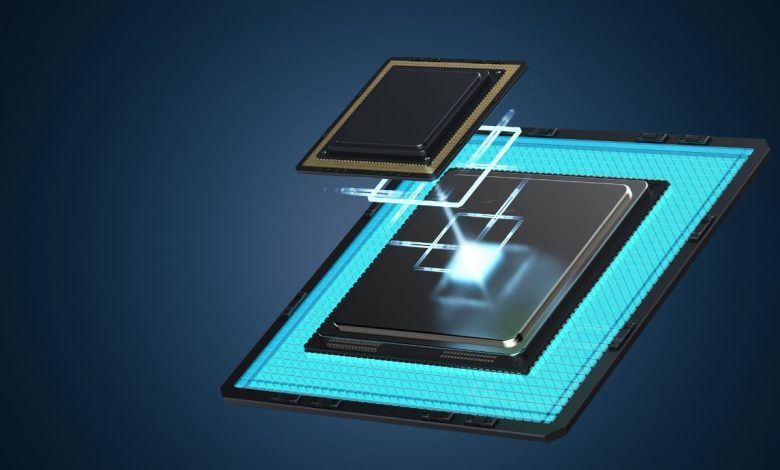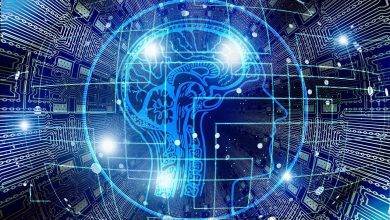Latest advancements in quantum computing technology

I will discuss the Latest advancements in quantum computing technology in this blog post. We conduct quantum computing data operations by exploiting mechanical phenomena like superposition and entanglement. It can radically alter many different sectors by providing answers to complex issues that traditional computers can’t manage. Some hypothetical areas where quantum computing might have an effect include:
Finance:
Portfolio optimization and the valuation of exotic financial derivatives are two areas where quantum computing has proven useful. It may also aid banks in assisting their clients with issues.
Healthcare:
Quantum computing can analyze large volumes of medical data to provide individualized patient therapies.
Space and Defense:
Space exploration and military applications may benefit from quantum computing’s ability to mimic complicated systems and improve mission planning.
Energy and Power:
Optimization of energy distribution and storage systems and the discovery of novel materials for energy generation are all possible with the help of quantum computing.
Chemicals:
New materials and chemical processes may be simulated with quantum computing.
Manufacturing:
Quantum computing can create new ground-breaking goods and services that will revolutionize manufacturing.
Current State of Quantum Computing
Here is a quick rundown of where quantum computing stands right now:
Rapid Development:
Governments and corporations all across the globe are investing heavily in quantum computing, so its progress is fast. The technology can completely transform many businesses by simulating chemical and biological systems, addressing optimization challenges, and bolstering basic research and current technologies.
Maturity:
Quantum computing has come a long way, but it’s still immature. Technology is still in its infancy.
Breakthroughs and Milestones:
Quantum computing has made significant strides, with some of the most notable being the realization of quantum supremacy, the creation of industrial quantum computers, and the establishment of cloud-based quantum computing services. These landmarks are undeniable evidence of the maturation of quantum computing.
Adoption Rate:
According to a poll of experts from various fields, the pace of adoption of quantum computing across industries is about par for the course. However, substantial technological, media, and telecom developments have occurred in the past five years.
Potential Impact:
Several sectors might be entirely transformed by quantum computing. Financial portfolios, medical data for tailored healthcare, complex systems for space and military applications, energy distribution and storage systems, and novel materials for manufacturing and chemicals may all benefit from using artificial intelligence.
Challenges and Limitations:
There are still barriers and restrictions to quantum computing. Error correction and keeping qubits coherent are continuing difficulties. Concerns have also been raised regarding how quantum computing would affect cryptography and internet security.
Use Cases and Applications
Different sectors may be affected by quantum computing since it can solve complex issues more quickly than traditional computers. Instances and fields where quantum computers have proven beneficial are listed below.
Finance:
Portfolio and risk management, investment portfolio optimization, and the pricing of exotic financial derivatives are all areas where quantum computing might be helpful. It may aid financial firms in better risk assessment and decision-making.
Pharmaceuticals and Chemicals:
Research & development in the chemical and pharmaceutical sectors may benefit significantly from using quantum computing. Toxicology testing, drug design, drug target identification, and drug discovery may all benefit from its use.
Automotive:
Optimization issues, such as route optimization for logistics and supply chain management, are well suited for quantum computing’s use in the automobile sector. It may be used to facilitate the simplification and enhancement of manufacturing procedures.
Cybersecurity:
The future of encryption and online security will be affected by quantum computing. Since quantum computers may theoretically crack existing encryption protocols, there is a pressing need to create new algorithms immune to this threat.
Manufacturing:
In manufacturing, quantum computing has the potential to cause a revolution by facilitating the creation of ground-breaking new goods and services. It can help streamline production and logistics and pave the way for novel materials with exciting features.
Healthcare:
The analysis of massive volumes of medical data and the development of individualized therapies are two areas where quantum computing has the potential to have a profound effect on healthcare. It may help with diagnostic imaging, finding new drugs, and simulating diseases.
Supply Chain and Logistics:
Logistics and supply chain activities, such as route optimization, inventory management, and demand forecasting, can be improved with the help of quantum computing. It can boost productivity, cut down on waste, and save money.
Energy and Power:
Optimization of energy distribution and storage systems and the discovery of novel materials for energy generation are all possible with the help of quantum computing. It may help research and develop alternative, more efficient energy sources.
Research and Development:
By modeling complicated systems and providing solutions to optimization issues, quantum computing may speed up R&D in many different areas. Scientists and researchers may use it to understand complex events better and uncover previously unknown facts.
Advancements in Quantum Hardware
Hardware for quantum computers is fast maturing into a marketable state. Some recent developments in quantum hardware are as follows:
Superconducting Qubits:
In quantum computing, superconducting qubits are now the most popular option. Because of the low temperatures required for operation, they may be constructed from superconducting materials. Increases in the number of qubits and computing capacity of quantum computers have resulted from recent developments in superconducting qubits.
Trapped-Ion Qubits:
Another form of qubit utilized in quantum computing is the trapped-ion qubit. Ions are created by being trapped in an electromagnetic field, and their quantum states are manipulated. Although more challenging to scale up, trapped-ion qubits have the potential to be more stable and precise than superconducting qubits.
Quantum Annealing:
Quantum annealing is an optimization method implemented in quantum computers. Ground-state searching progressively cools a system until it reaches its lowest energy state. Many fields, including the economic and supply chain management sectors, have utilized quantum annealing to optimize issues.
Quantum Interconnects:
When it comes to building a quantum computer, quantum interconnects are essential. They allow a quantum computer’s components to share and receive quantum information.
Quantum Algorithms and Software
Essential parts of any quantum computer are the quantum algorithms and associated software. Some of the most recent developments in quantum computing software and algorithms include:
Open-Source Frameworks:
Quantum computing frameworks in the open-source software community include ProjectQ, Yao, and Cirq. Users can run quantum algorithms and simulate quantum circuits on traditional computers with the help of these frameworks.
Quantum Machine Learning:
Combining quantum computers with machine learning, quantum machine learning is a new and exciting area of study. TensorFlow Quantum (TFQ) is a library for quantum ML that facilitates the quick development of models that combine conventional and quantum techniques.
Quantum Software Development Kits:
Developments may use quantum software development kits (SDKs) to create quantum algorithms for quantum computers or simulators. These SDKs empower programmers to build and evaluate quantum algorithms on actual or simulated quantum hardware.
Quantum Optimization:
Unlike conventional computers, quantum computers are far better at addressing optimization issues, which is where quantum optimization comes in. Several quantum optimization methods, such as the Variational Quantum Eigensolver (VQE) and the Quantum Approximate Optimization Algorithm (QAOA), are available.
Quantum Cryptography:
Secure communication protocols based on quantum mechanics are the subject of quantum cryptography, a subfield of quantum computing. QKD is a quantum cryptography that allows for the safe transfer of a secret key between two parties.
Quantum Simulation:
Simulation of quantum systems using quantum computers is the subject of quantum simulation, a subfield of quantum computing.
Quantum Computing Ecosystem and Industry Trends
The ecosystem around quantum computing is quickly developing thanks to massive investments from governments and corporations throughout the globe. Emerging ecosystem developments and industry trends are as follows:
Emerging Ecosystem:
Startups, research institutes, and academic-industrial partnerships are all part of the developing quantum computing ecosystem. As quantum computing develops, so too should the supporting ecosystem.
Industry Adoption:
According to a poll of IT professionals from various fields, the quantum computing adoption rate is around par for industries. However, substantial technological, media, and telecom developments have occurred in the past five years.
Quantum Economy:
A new quantum economy, including banking, healthcare, logistics, and materials research, is possible thanks to quantum computing. As quantum computing develops, so too will the quantum economy.
Quantum Workforce:
Creating and implementing quantum computing widely requires a dedicated quantum workforce. Experts in quantum computing, such as researchers, developers, and engineers.



